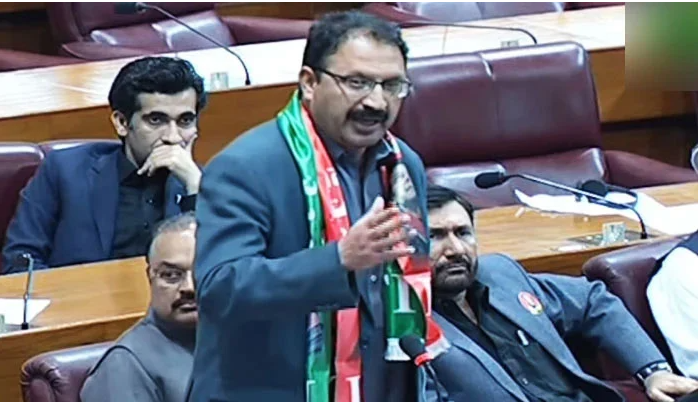Pakistan Tehreek-e-Insaf (PTI) members are getting more and more angry, so lawmaker Junaid Akbar quit the party’s core committee on Saturday.

After Omar Ayub, Leader of the Opposition in the National Assembly, quit as PTI secretary general, he did the same. This shows that the party’s organizational structure is changing even more.
Sher Afzal Marwat asked PTI Senator Shibli Faraz to quit because he was blocking access to Imran Khan, the founder of the PTI, who is in jail.
Akbar repeated these claims, saying that only “certain people” are allowed to meet the party supremo and not others.
Akbar said, “Their goals are the same, and we’ve been told that the party policy is in line with Imran Khan’s.” The choices will help these people, their families, and their friends.
He was angry that he didn’t have any power in the party and couldn’t meet the head who was in jail (at the moment, in Adiala).
Not long after he quit, Akbar said, “PTI is my home, and I am not a part of any group, nor will I be.”
The PTI Parliamentary Party said they believed in Omar Ayub a day after he quit, and they asked that his retirement not be accepted. Reports of a “forward bloc” were denied by the party, which said it was united under Imran Khan’s guidance.
After Ayub quit, sources said that 27 Sunni Ittehad Council (SIC) members backed by the PTI were thinking about leaving the National Assembly to protest the party’s leadership.
Insiders say that 21 lawmakers talked about making a “forward bloc” because the leadership couldn’t get party founder Imran Khan out of jail.
They also “sent a message” to PTI Chairman Barrister Gohar Ali Khan and Secretary-General Omar Ayub, telling them to work hard to get leaders who are in jail released.
The angry MNAs said that some leaders were looking for better positions instead of working to free the founder of the PTI and other jailed party leaders.
After Omar Ayub quit, people started talking about how to choose a new secretary general. Sheikh Waqas Akram from Jhang is a likely choice because he is from Punjab.










































